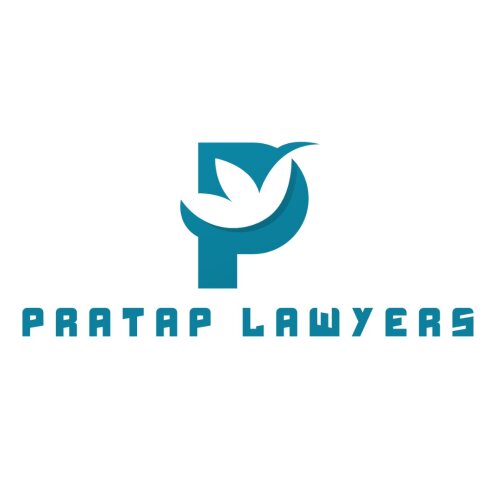Best Restructuring & Insolvency Lawyers in Suva
Share your needs with us, get contacted by law firms.
Free. Takes 2 min.
List of the best lawyers in Suva, Fiji
About Restructuring & Insolvency Law in Suva, Fiji
Restructuring and Insolvency law in Suva, Fiji, governs the process by which businesses and individuals address issues related to financial distress, debt management, and the rehabilitation or orderly liquidation of assets. The purpose of these laws is to provide a framework for both debtors and creditors to resolve financial difficulties in a fair and transparent manner, either through restructuring arrangements that enable continued business or insolvency proceedings that end in liquidation. Fiji's legal system draws heavily from the English common law model but has specific statutes and local procedures impacting how restructuring and insolvency matters are handled within Suva and throughout the country.
Why You May Need a Lawyer
There are many situations in which individuals or businesses in Suva may require legal assistance in restructuring and insolvency matters. Common circumstances include:
- Facing persistent financial difficulties and being unable to pay debts as they fall due
- Receiving insolvency notices or claims from creditors
- Wanting to restructure debt arrangements to avoid bankruptcy or liquidation
- Being a creditor seeking to recover funds from an insolvent debtor
- Navigating voluntary administration, receivership, or liquidation processes
- Understanding the impact of insolvency on contracts, employees, and business operations
- Ensuring compliance with all local legal requirements and deadlines
- Dealing with cross-border insolvency matters involving assets in Fiji and overseas
Having an experienced lawyer can help you understand your rights, adequately represent your interests, and achieve the most favorable outcome, whether you are a debtor, creditor, or a stakeholder in a business facing restructuring or insolvency.
Local Laws Overview
In Fiji, key legislation governing restructuring and insolvency includes the Companies Act 2015 and relevant provisions under the Bankruptcy Act. Insolvency laws cover both personal and corporate insolvency and set out the procedures for liquidation, receivership, administration, and voluntary arrangements. Highlights of the local law include:
- Definition of insolvency and tests for determining when a business or individual is insolvent
- Procedures and qualifications for voluntary administration, receivership, and liquidation
- Rights and priorities of creditors in insolvency proceedings
- Obligations and potential liabilities of company directors and officers
- Rules governing the conduct of insolvency practitioners
- Provisions for cross-border insolvencies and recognition of foreign insolvency proceedings
- Methods for restructuring debts through formal arrangements or court-approved schemes
It is important for those involved in restructuring or insolvency to be aware of these laws, as failing to comply can have significant legal and financial consequences.
Frequently Asked Questions
What is the difference between restructuring and insolvency?
Restructuring refers to processes that aim to reorganize a company or individual's debts and operations to avoid insolvency. Insolvency is the state of being unable to pay debts as they become due and may lead to formal legal processes such as liquidation or bankruptcy.
How do I know if my business is insolvent?
Your business may be insolvent if it cannot pay its debts when they fall due, or if its liabilities exceed its assets. Legal tests and accounting assessments are used to determine insolvency status under Fijian law.
What is voluntary administration?
Voluntary administration is a process where an independent administrator is appointed to take control of a company in financial distress. The aim is to allow time to assess options for the company, including restructuring, selling the business, or liquidation.
What happens during liquidation in Fiji?
In liquidation, the assets of a business or individual are gathered and sold to pay debts. A liquidator is appointed to manage this process, distribute proceeds to creditors according to priority, and ultimately deregister the company or discharge the bankruptcy.
Can I restructure my personal debts in Fiji?
Yes, individuals can propose a formal arrangement with creditors to restructure personal debts, or may enter bankruptcy as a last resort if restructuring is not feasible.
What are the duties of directors during insolvency?
Directors must act in the best interests of creditors when a company is insolvent or nearing insolvency. Failing to do so can result in personal liability for company debts or penalties under Fijian law.
Are employees entitled to unpaid wages if a company goes insolvent?
Employees are recognized as preferential creditors for certain outstanding entitlements such as wages and leave, but may not always receive the full amount owed if there are insufficient assets.
What can creditors do to recover debts from an insolvent debtor?
Creditors can initiate insolvency proceedings, participate in creditor meetings, file claims with the administrator or liquidator, and pursue other remedies depending on their security status and the debtor's situation.
Is court approval required for all insolvency proceedings?
Some insolvency actions, such as company liquidation or bankruptcy, require court involvement, while others, like certain restructuring schemes, may be implemented out of court if creditors agree. Legal advice is important to comply with procedural requirements.
Can foreign creditors or companies participate in Fiji insolvency cases?
Yes, Fijian insolvency laws provide for the recognition of foreign insolvency proceedings and participation of overseas creditors, subject to certain rules and evidence requirements.
Additional Resources
If you are seeking information or advice on restructuring and insolvency in Suva, consider the following resources and organizations:
- Fiji Financial Intelligence Unit - offers information on financial compliance and insolvency matters
- Office of the Registrar of Companies - provides documentation and forms for company administration and liquidation
- Fiji Law Society - can assist in finding a qualified restructuring or insolvency lawyer
- Reserve Bank of Fiji - oversees aspects of financial regulation related to insolvency and restructuring
- Ministry of Justice - responsible for the administration of courts and legal processes
These organizations can supply guidance, referral services, and access to forms and procedures relevant to restructuring and insolvency cases.
Next Steps
If you believe that you or your business might need to engage in restructuring or insolvency processes in Suva, Fiji, it is important to act promptly and seek professional advice. Here is how you can proceed:
- Gather all relevant financial documents and information
- Assess your current financial situation and obligations
- Reach out to a qualified restructuring and insolvency lawyer based in Suva for a confidential consultation
- Discuss the available options, expected outcomes, and legal implications with your lawyer
- Follow your lawyer's advice regarding notifications to creditors, administrators, or relevant authorities
- Ensure that you comply with all filing and reporting obligations throughout the process
Taking early action and obtaining professional legal assistance can help safeguard your interests and maximize the potential for a positive outcome in any restructuring or insolvency matter.
Lawzana helps you find the best lawyers and law firms in Suva through a curated and pre-screened list of qualified legal professionals. Our platform offers rankings and detailed profiles of attorneys and law firms, allowing you to compare based on practice areas, including Restructuring & Insolvency, experience, and client feedback.
Each profile includes a description of the firm's areas of practice, client reviews, team members and partners, year of establishment, spoken languages, office locations, contact information, social media presence, and any published articles or resources. Most firms on our platform speak English and are experienced in both local and international legal matters.
Get a quote from top-rated law firms in Suva, Fiji — quickly, securely, and without unnecessary hassle.
Disclaimer:
The information provided on this page is for general informational purposes only and does not constitute legal advice. While we strive to ensure the accuracy and relevance of the content, legal information may change over time, and interpretations of the law can vary. You should always consult with a qualified legal professional for advice specific to your situation.
We disclaim all liability for actions taken or not taken based on the content of this page. If you believe any information is incorrect or outdated, please contact us, and we will review and update it where appropriate.
















